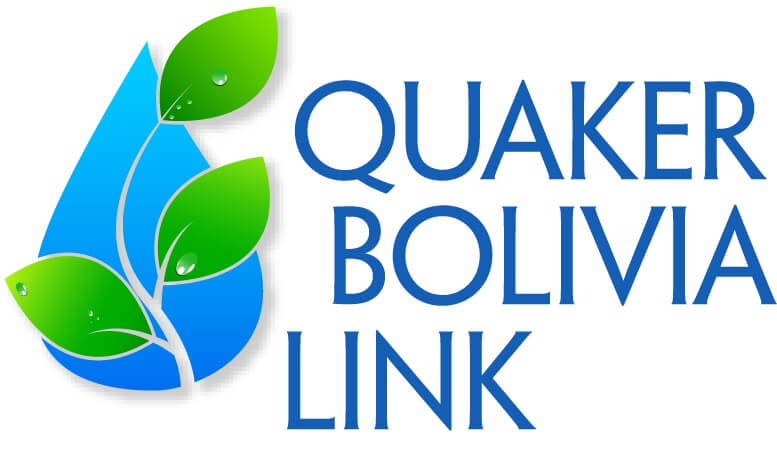Quaker Bolivia Link (QBL) has been successful and sustainable because of its unique structure and approach to development: representing a close partnership between British Quakers and Bolivian Quakers. While a lot of development programmes operate a top-down structure, by which the funding entities determine the scope and nature of goods and services delivered to beneficiaries, QBL does the opposite. The indigenous communities, or beneficiaries, initiate a relationship with Quaker Bolivia Link by working with their local leaders and our partners to design a project proposal based on their specific situation. This includes discussing community needs, and designing a detailed budget, a logistical plan to source materials and an appropriate timeline. Once the project proposal is ready, a formal application is made to QBL in the UK for possible funding. Each community may also share the investment in the project by providing some funding and their own labour.
QBL communicates through our partners whose technical staff determines funding requirements based on need, feasibility, and sustainability. Once QBL agrees to fund, the implementation of a project involves the entire community and beyond. Everyone within the benefitting area is trained to construct, operate, maintain, or care for the project assets according to their abilities. To further improve sustainable economic development among the indigenous people and in Bolivia in general, Quaker Bolivia Link and the project beneficiaries remain committed to sourcing materials locally and almost exclusively hiring local contractors where needed. In this way, the reach of a project extends far beyond community lines. Our partners staff in Bolivia continues to monitor each project quarterly and each community contributes to a maintenance fund to ensure sustainability of the projects.
All QBL projects involve three way agreements between the community in need, the municipality in which the project is located and our partners. This working relationship is formalised in a legal agreement. The community requesting the project establishes a committee which plans and manages the project both during its implementation and its operation. The local community also provides much of the manual labour involved. The municipality provides significant financial support and at times its professional staff offer their expertise. QBL makes a substantial financial contribution to overall costs, including technical and management assistance through our partners, who accompany the community through the planning, implementation and follow up stages of the project.
The Process
A project proposal goes through several steps before we agree to fund it and the work doesn’t stop once the project is completed as we need to make sure it works for the long-term.
Community request
All our projects begin when a community expresses their interest in a project, either to our partners directly or through a local government office with which our partners have been working.

Coordinating with local government and the community
Before our partners begin work with a village, significant preparation and coordination with the local municipal government is undertaken: the municipal government being responsible for providing funding and expertise for small villages located within their jurisdiction. They are also responsible for developing yearly plans to promote the development of their municipality. QBL respects and encourages this local governance and responsibility.
Establishing need
During the meeting with the whole village, the project that they had requested is discussed and explanations provided in respect of what is asked from them in terms of carrying out the project. For example, their need to provide local labour and to create a small fund to begin the project.
One common problem is attempting to fully understand exactly how many families live in a village. Migration to the cities to seek better living conditions is widespread throughout the Altiplano, sometimes only a father or perhaps an older son, whilst at other times it is a whole family, which only returns to the village once a month or during planting and harvest seasons. Some families may only return once a year for special holidays. These variables can make it difficult to gain an accurate figure of the number of families that live in a village and who would be involved in the project.
A survey of the community is also carried out to get a better understanding of the living conditions. Basic information such as house construction materials, the presence of basic services or the number of school children, can provide us with important information about how the project should be prioritised.
Approving the proposal
Once all of this information is compiled into a proposed project, we meet again with the community and ask them to formally indicate their interest in the project and that they are willing to fulfill their responsibilities once the project is funded. The municipality also signs this document in the case of most projects, since they will provide 30% of the funding. At this point, we know that the project has broad support beginning in the village, with the municipal government as well as our technical staff.
Our Bolivian partner reviews the project and gives it their “vista buena” before sending it to QBL in the UK for funding.
The UK Trustees will translate and summarise the proposal into English before reviewing it and deciding whether they can fund it. If approved then that decision is minuted and communicated to the our partner in Bolivia.
Once the funds are transferred to Bolivia, our partners writes a letter and a proposed contract and presents the good news to the community. Once again, our partner and the community representatives sign a document affirming our mutual commitments: Our partner commits to providing the funding and technical support; the community commits to providing the labour and local building materials, such as rocks and sand for the cement. Those of you with experience in Latin America will know that elaborate documents, with multiple seals, stamps and signatures, are considered very important.
Now the project can start
With all of the fanfare and anticipation over, the villagers and QBL can begin the hard work of organizing, digging, building and, once the project is finished, celebrating.

